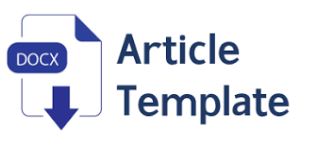Utilization of Adobe Premiere Pro Using Project-Based Learning Strategies to Improve Learning Outcomes of Educational Technology Students in Broadcasting Technology Courses
DOI:
https://doi.org/10.52647/jep.v7i1.359Keywords:
Pemanfaatan, Adobe Premiere Pro, Project Based Learning, Hasil BelajarAbstract
This study aims to describe the implementation strategy of Project-Based Learning (PBL) using Adobe Premiere Pro software and determine the impact of using this software on the academic results of Educational Technology students in the Broadcasting Technology course. The method used in this research is quantitative, with a descriptive quantitative approach, and data collection was carried out through observation, interviews, questionnaires, tests, and documentation. The results of this research show that the application of the Project-Based Learning (PjBL) model integrated with the use of Adobe Premiere Pro in broadcasting education has a positive and significant impact on students' academic results. Observation shows that the entire PjBL syntax was implemented effectively. The results of the pre-test and post-test analysis, using the Man Whitney U statistical test, show a statistically significant difference between the experimental group and the control group (p = 0.049 < 0.05). The survey responses show that most students felt helped and more interested in learning using Adobe Premiere Pro, with a response rate of 207.5% and the category “Very positive.” The results of the project evaluation show that the experimental class (Adobe Premiere Pro) obtained an average score of 84.24 (category “Good”), much higher than that of the control class (CapCut), with an average score of 60.58 (category “Fair”).
Downloads
References
Abdullah et al. (2021). Metodologi Penelitian Kuantitatif. http://penerbitzaini.com
Affandi & Ekohariadi. (2021). Pengaruh Media Pembelajaran Berbasis Video Interaktif Menggunakan Aplikasi Adobe Premiere Pro Untuk Meningkatkan Hasil Belajar Siswa Pada Mata Pelajaran Kewirausahaan Smk Negeri 2 Surabaya Di Era Pandemi (Vol. 05).
Arikunto. (2010). Prosedur penelitian suatu pendekatan praktek. (No Title).
Arisandi, D., Widya Mutiara, M., & Christanti Mawardi, V. (2022). Dampak Kegiatan Merdeka Belajar Kampus Merdeka (Mbkm) Magang Dan Studi Independen Dalam Meningkatkan Kompetensi Mahasiswa. Jurnal Muara Ilmu Sosial, Humaniora, Dan Seni, 6(1), 174. https://doi.org/10.24912/jmishumsen.v6i1.16163.2022
Eka, C., Puji Lestari Santoso, N., Sindy Amelia, & Devana, V. T. (2021). Pelatihan Software Editing Bagi Mahasiswa Pada Universitas Raharja. ADI Pengabdian Kepada Masyarakat, 1(2), 60–65. https://doi.org/10.34306/adimas.v1i2.442
Ilahiyyah et al. (2021). Implementasi Project-based Learning untuk Meningkatkan Entrepreneurial Mindset dan Entrepreneurial Skills pada Siswa SMK Nurul Islam. Jurnal Maksipreneur: Manajemen, Koperasi, Dan Entrepreneurship, 11(2), 197. https://doi.org/10.30588/jmp.v11i2.885
Kemendikbud. (2020). Buku Panduan Merdeka Belajar-Kampus Merdeka.
Nasution. (2023). Implementasi Program Magang Merdeka Belajar-Kampus Merdeka Di Disperindag Sumut Untuk Meningkatkan Kompetensi Mahasiswa Memasuki Dunia Kerja. JPM Jurnal Pengabdian Mandiri, 2(7). http://bajangjournal.com/index.php/JPM
Paramita et al. (2021). METODE PENELITIAN KUANTITATIF.
Permendikbudristek No 53 Tahun 2023. (2024). BUKU PANDUAN MERDEKA BELAJAR-KAMPUS MERDEKA 2024.
Razilu, Z. (2022). PEMANFAATAN ADOBE PRIMIERE-PRO SEBAGAI MEDIA AJAR DALAM MENINGKATKAN HASIL BELAJAR SISWA. In Jurnal Pendidikan dan Pengajaran (JPP (Vol. 3, Issue 3).
Salim, A., & Wahidah, E. Y. (2023). The Urgency of Implementation and Challenges of Merdeka Belajar Kampus Merdeka: An Analysis Study at State Higher Education in Kalimantan. QALAMUNA: Jurnal Pendidikan, Sosial, Dan Agama, 15(2), 805–814. https://doi.org/10.37680/qalamuna.v15i2.2715
Sugiyono. (2023). METODE PENELITIAN KUANTITATIF, KUALITATIF, DAN R&D. www.cvalfabeta.com
Telaumbanua. (2024). Pengaruh Soft Skill dan Hard Skill Mahasiswa Terhadap Kesiapan Kerja di Era Revolusi Industri 4.0.
Tuhuteru. (2023). Pendidikan Dan Tantangan Pembelajaran Berbasis Teknologi Digital Dan Informasi Di Indonesia Pada Era Disruptif (Vol. 5).
Vhalery, R., Setyastanto, A. M., & Leksono, A. W. (2022). Kurikulum Merdeka Belajar Kampus Merdeka: Sebuah Kajian Literatur. Research and Development Journal of Education, 8(1), 185. https://doi.org/10.30998/rdje.v8i1.11718
Wafiyah et al. (2025). Pengaruh Model Project-Based Learning (PjBL) terhadap Creative Thinking dan Creative Performance Siswa SMP dalam Pembelajaran IPA. JURNAL PENDIDIKAN MIPA, 15(2), 425–437. https://doi.org/10.37630/jpm.v15i2.2619
Tohir, A., Muslim, S., & Situmorang, R. (2025). The Effectiveness of the Digital 5E Learning Model Integrated with Google Classroom on Science Learning Outcomes in Junior High School. Journal of Neonatal Surgery, 14(6), 259–263.
Tohir, A., Muslim, S., & Situmorang, R. (2025). Integration of Technology in Learning: Enhancing Higher Order Thinking Skills (HOTS) in Secondary School Students. International Journal of Computational and Experimental Science and Engineering, 11(3). https://doi.org/10.22399/ijcesen.3474
Utama, A. H., & Salim, A. (2021). Program Pelatihan Pengembangan Bahan Ajar Berbasis Video Pembelajaran. Journal of Innovation Research and Knowledge, 1(2), 73–82.
Downloads
Published
How to Cite
Issue
Section
License
Copyright (c) 2025 Muhammad Sultan Ari Rivaldi, Susanti Sufyadi, Sulistyo Rini

This work is licensed under a Creative Commons Attribution-ShareAlike 4.0 International License.



